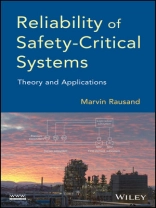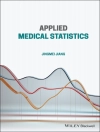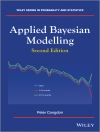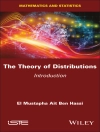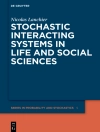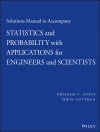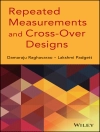Presents the theory and methodology for reliability
assessments of safety-critical functions through examples from a
wide range of applications
Reliability of Safety-Critical Systems: Theory and
Applications provides a comprehensive introduction to
reliability assessments of safety-related systems based on
electrical, electronic, and programmable electronic (E/E/PE)
technology. With a focus on the design and development phases of
safety-critical systems, the book presents theory and methods
required to document compliance with IEC 61508 and the associated
sector-specific standards.
Combining theory and practical applications, Reliability of
Safety-Critical Systems: Theory and Applications implements key
safety-related strategies and methods to meet quantitative safety
integrity requirements. In addition, the book details a variety of
reliability analysis methods that are needed during all stages of a
safety-critical system, beginning with specification and design and
advancing to operations, maintenance, and modification control. The
key categories of safety life-cycle phases are featured, including
strategies for the allocation of reliability performance
requirements; assessment methods in relation to design; and
reliability quantification in relation to operation and
maintenance. Issues and benefits that arise from complex modern
technology developments are featured, as well as:
* Real-world examples from large industry facilities with major
accident potential and products owned by the general public such as
cars and tools
* Plentiful worked examples throughout that provide readers with
a deeper understanding of the core concepts and aid in the analysis
and solution of common issues when assessing all facets of
safety-critical systems
* Approaches that work on a wide scope of applications and can be
applied to the analysis of any safety-critical system
* A brief appendix of probability theory for reference
With an emphasis on how safety-critical functions are introduced
into systems and facilities to prevent or mitigate the impact of an
accident, this book is an excellent guide for professionals,
consultants, and operators of safety-critical systems who carry out
practical, risk, and reliability assessments of safety-critical
systems. Reliability of Safety-Critical Systems: Theory and
Applications is also a useful textbook for courses in
reliability assessment of safety-critical systems and reliability
engineering at the graduate-level, as well as for consulting
companies offering short courses in reliability assessment of
safety-critical systems.
قائمة المحتويات
Preface xii
Acknowledgments xvii
1 Introduction 1
2 Concepts and Requirements 25
3 Failures and Failure Analysis 53
4 Testing and Maintenance 77
5 Reliability Quantification 91
6 Relaiability Data Sources 165
7 Demand Modes and Performance Measures 175
8 Average Probability of Failure on Demand 191
9 Average Frequency of Dangerous Failures 273
10 Common-Cause Failures 309
11 Imperfect Proof-Testing 343
12 Spurious Activation 359
13 Uncertainty Assessment 381
14 Closure 393
Appendix A Elements of Probability Theory 399
Acronyms 423
Symbols 427
Bibliography 431
Index 443
عن المؤلف
MARVIN RAUSAND is Professor in the Department of
Production and Quality Engineering at the Norwegian University of
Science and Technology. With more than thirty-five years of
academic experience, he has published a high number of
peer-reviewed articles in his areas of research interest, which
include system reliability theory, risk analysis, maintenance
optimization, and probabilistic modeling. Professor Rausand is the
author of Risk Assessment: Theory, Methods, and Applications
and System Reliability Theory: Models, Statistical Methods, and
Applications, Second Edition, both published by Wiley.
